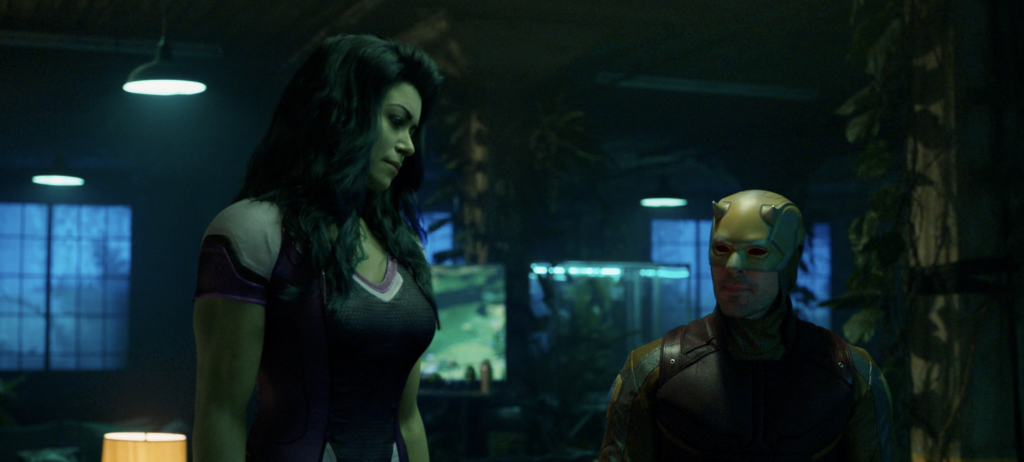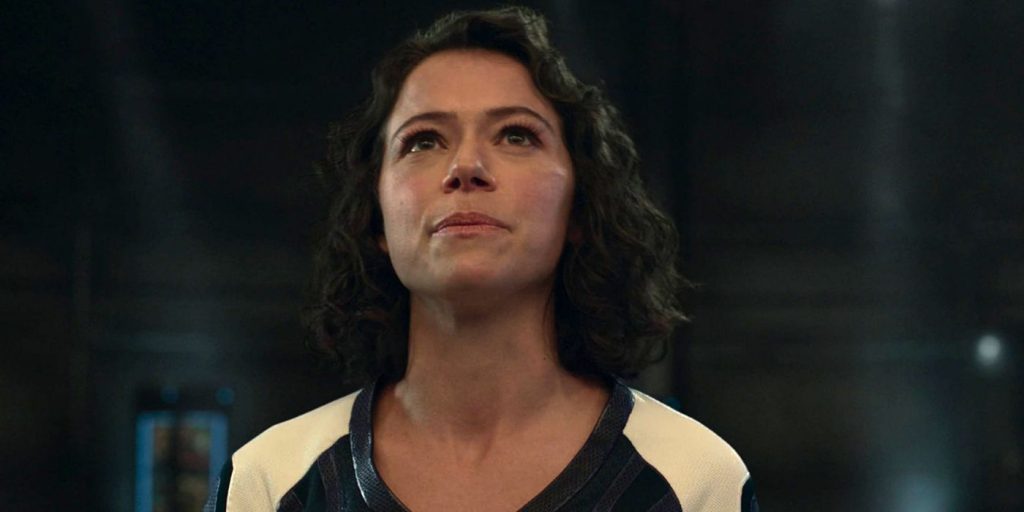Marvel’s latest series, She-Hulk: Attorney at Law, has come and gone, leaving behind a plethora of mixed sentiments. The first half of the season contained great potential, possessing an intriguing premise, earnest performances and a refreshing take on previous Marvel properties. However, the show suffered a bumpy start, as inconstant treatment of tone and short runtimes impeded it from blowing away fans. The second half of the series dives deeper into Jennifer Walters’ juggling act between life, career, and being the She-Hulk. Despite featuring a hilarious ensemble cast and guest stars, problems like genre dissonance, shallow themes, and short runtimes persisted, and any hopes I had for She-Hulk’s course correction were Hulk-smashed.
The formidable ensemble cast and guest stars boost the series’ appeal, sometimes even outshining the titular character. Series regulars Ginger Gonzaga and Josh Segarra excel as Walters’s colleagues Nikki Ramos and Augustus “Pug” Pugliese. Gonzaga’s performance as Walters’ sardonic, rule-breaking paralegal is absolute fun, giving Ramos an infectious exuberance. Paired with Segarra’s supportive and innocent portrayal of “Pug,” the two create a great comedic chemistry that often steals the spotlight from She-Hulk’s adventures. Whether hunting for vintage sneakers and super suit tailors or infiltrating internet groups, Nikki and Pug’s B-plot shenanigans always entertain, reviving the show from its stale main narrative.

The guest stars of the season’s second half also capture the audience, allowing established Marvel characters to fool around She-Hulk’s fun and low stakes. Notably, episode 8 witnessed the return of Marvel favourite Daredevil, who first appeared in the Netflix series of the same name. Charlie Cox’s portrayal of the character is given new life in She-Hulk. The dark, gritty vigilante is lighter, both in demeanour and appearance, creating a playful counterpoint to both Jennifer Walters and She-Hulk that adds much-needed fun to the show. Although the creators of She-Hulk probably meant ensemble characters like Nikki, Pug, and Daredevil to support and enhance the main characters and storylines, they end up being the highlight of the show.
These geek treats fail to compensate for the show’s major impediments: persisting genre dissonance and lack of substance. Despite branding itself as a legal dramedy/superhero show, the series rarely dabbles in both; superheroics are scarce, and legal procedurals are an afterthought. I had hoped that over the course of the series, She-Hulk would strike the balance, allowing the viewers the chance to see Jennifer Walters seek justice within the courtroom and on the streets as She-Hulk. But as the show continued, we saw neither. As a result, She-Hulk exists in a kind of genre purgatory, pursuing various genres while possessing none. This paradoxical treatment of genre unfortunately obstructs the series’ exploration of intriguing themes such as toxic masculinity and the nature of justice in favour of offbeat jokes and poorly timed action scenes. The show prioritizes style over substance, making these themes staggeringly shallow.

Still, She-Hulk’s strangest creative decision may be Waters’ breaking of the fourth wall. Following John Byrne’s Sensational She-Hulk comic, Jennifer Walters/She-Hulk delivers a metacommentary on her show. In the season finale, this subtle yet comedic tool is shattered, literally and figuratively. She-Hulk removes herself from the fabric of her show, demanding Marvel executive Kevin Feige, now in robot form, to rewrite its ending. This bizarre choice, meant to give her agency, contradictorily removes it, as the show culminates not with Jennifer Walters confronting adversity but an A.I. deus ex machina. The season finale may just unspool the already loose narrative threads of the first season, leaving viewers and I in a state of bittersweet disappointment.
Looking back, She-Hulk: Attorney at Law was a strange viewing experience. The show was in constant conflict with itself. She-Hulk strived to be the next breakout Marvel original through the combination of refreshing metacommentary on the Marvel formula and Jennifer Walters/She-Hulk bringing super-heroics into a court of law and beyond. Instead, fans are left with the odd scraps of this vision, in which hyper-stylized production hides a genreless, substanceless program. Although earnest performances and a fantastic cast were enough to make the show pleasant, die-hard fans of She-Hulk might be better off reading the comic books.
